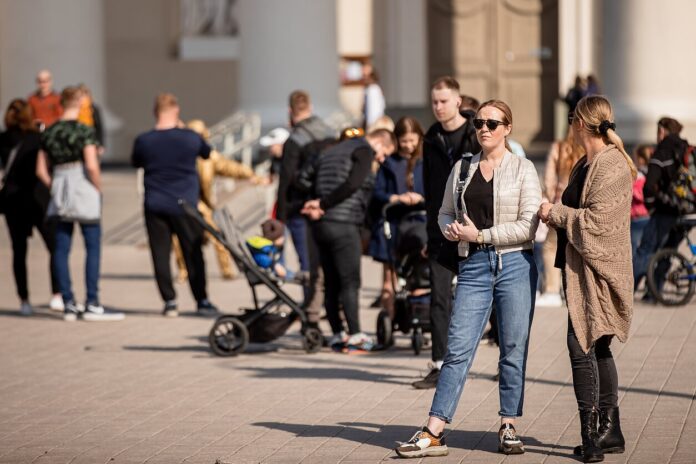
On Monday, June 28, the Lithuanian government revoked the quarantine declared on November 7 of last year. As of July 1, some restrictions and recommendations will remain in place, as the state of emergency has not been called off. “The main message is – let’s not confuse anything today, most of the measures – practically all of them have been moved from quarantine status to emergency status,” said Minister of Health Arūnas Dulkys.
Services and trade will be conducted in in all institutions and companies with customers being served in accordance with the conditions set by emergency managers. The same conditions that were in place under the quarantine regime remain in force when entering and leaving Lithuania. When crossing borders, it remains necessary to provide documentation of immunization against COVID-19 or COVID-19 testing.
The “Opportunity Passport” remains valid. It will be used at large events such as festivals, concerts, and other mass gatherings where spectators and participants move freely, and in education and personal health care services. Pre-registration of attendees remains in force. The number of participants in open spaces is not limited. Enclosed facilities will be allowed to admit attendees at 75% capacity. Wearing masks is still required for indoor services, and recommended outdoors, other than for one-household groups.
The National Public Health Centre (NVSC) reports that the Delta coronavirus variant has already started to spread in Lithuania. Seventeen new cases of the Delta strain have been detected through genome sequencing tests in recent days, the centre said on June 30. Eight cases were found in Vilnius County, five in Utena County and one case each in the counties of Šiauliai, Panevėžys, Klaipėda and Alytus. Overall, 23 cases of the Delta variant have been found in Lithuania so far. Epidemiological findings suggested some of the Delta variant infections were spread domestically, and were not imported. The so-called Alpha variant, first identified in the UK, remains the dominant coronavirus form in Lithuania.
News from LRT.lt






























